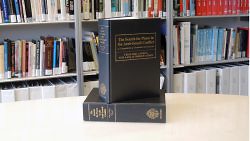
Finding the way to peace in the Middle East continues to be one of the great challenges of international diplomacy. The Search for Peace in the Arab-Israeli Conflict is a comprehensive volume of all relevant documents on the Arab-Israeli conflict over the past century.Amid a growing documentary literature on this topic, this book is unique […]
Read more









